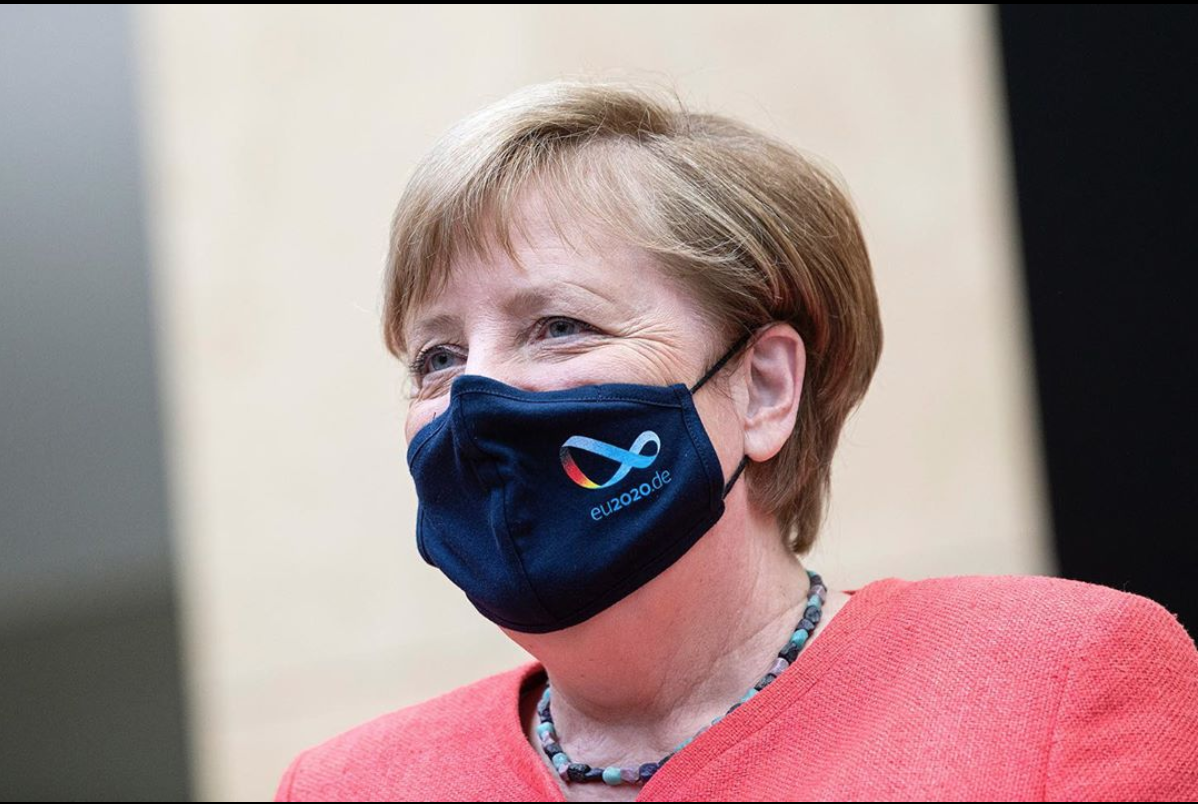How and why the Merkel government is chasing the Greens

Climate goals are taking center stage in Germany. From the sentence of the Constitutional Court to the action of the government with a more ambitious plan. But economic experts (IW of Cologne) fear it is only movement for electoral purposes
For the moment, the new German climate targets are contained in a sparse ad folder that smacks of an electoral campaign for the use and consumption of the Social Democrats. Set by Environment Minister Svenja Schulze and emphasized by Finance Minister Olaf Scholz, who is the SPD candidate for chancellery, they plan to strengthen and anticipate two targets that Germany had already set: to bring by 2030 from the expected 55 to 65 % the rate of reduction of CO2 emissions compared to 1990 and anticipate the achievement of climate neutrality from 2050 to 2045.
The proposal already has the imprint of Angela Merkel and the Minister of the Environment has promised in a week to sort out the details and present a detailed package to the government council next Wednesday to be approved.
Merkel doesn't really care about giving a small image advantage to SPD competitors, since she won't be the one to regain the chancellor's cheeks in the election campaign. You are more anxious to show that your government has moved, on an issue considered central and decisive in the policies of the next few years, after the shock that came from the Constitutional Court.
Last week, the Karlsruhe judges upheld an appeal filed by young people from the Fridays For Future movement, returning to the government the environmental protection law that was fired in 2019 because it did not include concrete targets beyond 2030, charging most of the cuts to harmful emissions on the shoulders of future generations "compromising their freedom". The accompanying suggestion: put the legislation back in place by 2022, safeguarding the new aspect introduced by the sentence, intergenerational solidarity. Young people should not be paying for today's hesitations of adults tomorrow, the High Court judges said.
For the moment, however, we are in the ad policy. In addition to the two new parameters that will be introduced, nothing has been leaked, and nothing is known about how and where the resources will be found to aim for the most ambitious goals. The 5-year anticipation of climate neutrality means that by 2045 Germany is committed to producing as many emissions as the atmosphere can absorb, either through so-called "natural CO2 stores" such as forests and swamps or through massive use of appropriate technologies.
To make this objective more credible, the government should also set an intermediate stage, of monitoring and evaluation, identified in 2040, when the reduction of harmful emissions will have to reach 88% less than in 1990.
However, economic analysts are waiting to see better what will be in the new government package and do not trust the electoral climate in which the latest maneuvers inevitably move. Ecological issues are returning forcefully to the center of the political debate and could determine successes and defeats in the electoral campaign that has already started. The Grünens feel the wind in their sails, and in all the main polls they have bypassed the conservatives of the CDU-CSU and concretely touch the possibility of the great surprise: winning and obtaining the first green chancellery in the history of the Bundesrepublik. The other parties, at the moment, are chasing after with breathlessness. And wheezing can be a bad advisor on such sensitive topics.
A first alarm bell comes from the IW economic institute of Cologne, which accuses the government of Grosse Koalition of "politicizing" the issue, reacting "frightened" to the demands of Karlsruhe and "taking refuge in the definition of new objectives instead of calmly elaborating and reasonableness a realistic strategy ".
That the plans of 2019 were now outdated was already clear with the European Geen Deal which imposed an acceleration of times, the expert of the Rhenish think tank Thilo Schaefer told the Handelsblatt , and "the CO2 emissions of industry and energy they will be limited by emissions trading managed at European level: the national states have responsibility for the other aspects ". One of these will be the increase in CO2 prices, but economists are asking the government for more concrete measures, for example, "to really develop the network of charging stations for electric cars, to heat homes with green energy, to allow to industrial production the transition towards the use of regenerative energies, to encourage the importation of clean hydrogen and to produce renewable energy at home to be made available at competitive prices ".
To free itself from the impression of a facade and purely electoral maneuver, according to the Cologne economists, the government will have to put a real plan on the table. The skepticism is great: Minister Schulze has made it known that the package is almost ready and the experts fear the vagueness of the means behind the peremptory nature of the objectives. "Now it's about promoting investments in climate-friendly technologies, aligning public procurement with climate criteria, building infrastructure and removing regulatory barriers," Schaefer concluded, "this is the only way German companies can remain competitive."
This is a machine translation from Italian language of a post published on Start Magazine at the URL https://www.startmag.it/mondo/come-e-perche-il-governo-merkel-rincorre-i-verdi/ on Sat, 08 May 2021 05:29:32 +0000.
